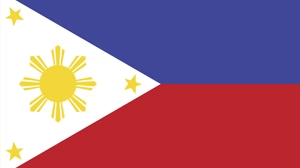
AUTHORIZED REPRESENTATIVE (MEDICAL DEVICES PHILIPPINES)
REGULATING MEDICAL DEVICES
To place medical devices on the market in the Philippines, non-local companies must adhere to regulatory compliance requirements established by the Philippine Food and Drug Administration (FDA) under the Republic Act No. 9711, also known as the FDA Act of 2009.
COUNTRY AUTHORIZED REPRESENTATIVE RESPONSIBILITIES
Non-local companies must appoint an authorized representative in the Philippines which is referred to as the license holder. They act as an intermediary between the non-local company and the Philippine FDA. They assist with regulatory submissions and communication with Philippine authorities.
The License Holder is required to participate in the customs clearance procedure for devices covered by its Import License. Services provided by third-party vendors, such as freight forwarding, are billed on a pass-through basis. A Shipment Report is created for each occurrence to document charges and receipt information. Additionally, the importer, distributor, or manufacturer's License to Operate must be kept current with data from the foreign manufacturing source.
Here is a summarized overview of these requirements with a focus on the role of the authorized representative:
1. Product Registration:
- Non-local companies must register their medical devices with the Philippine FDA before they can be legally marketed and sold in the Philippines.
- Registration involves submitting comprehensive documentation regarding the device's safety, quality, and efficacy.
2. Authorized Representative:
- Non-local companies must appoint an authorized representative in the Philippines.
- The authorized representative acts as an intermediary between the non-local company and the Philippine FDA.
- They assist with regulatory submissions and communication with Philippine authorities.
3. Device Classification:
- Medical devices are classified based on risk, and the classification determines the level of regulatory scrutiny required.
- Non-local companies must determine the classification of their devices to understand the specific requirements.
4. Quality Management System (QMS):
- Medical device companies must establish and maintain a QMS compliant with international standards, such as ISO 13485.
- The Philippine FDA may audit the QMS to ensure compliance.
5. Labeling and Packaging:
- Medical device labeling and packaging must comply with Philippine regulations, including language requirements and specific labeling content.
- The authorized representative may assist in ensuring proper labeling and packaging.
6. Clinical Data and Testing:
- Depending on the device's risk classification, clinical data and testing may be required to demonstrate safety and efficacy.
- Non-local companies must provide this data as part of the registration process.
7. Post-Market Surveillance:
- Companies must establish a system for monitoring and reporting adverse events or product defects to the Philippine FDA.
- The authorized representative may assist with reporting obligations.
8. Fees and Payments:
- Non-local companies are typically required to pay registration fees and annual renewal fees.
- The authorized representative can assist in handling these financial transactions.
9. Compliance with Philippine Laws:
- Non-local companies must comply with all Philippine laws and regulations pertaining to medical devices.
- The authorized representative plays a role in ensuring ongoing compliance.
10. Notification of Changes:
- Any changes to the medical device or its manufacturing process must be reported to the Philippine FDA through the authorized representative.
11. Periodic Inspections:
- The Philippine FDA may conduct periodic inspections of the manufacturing facilities, storage facilities, and records of non-local companies through the authorized representative.
In summary, non-local companies looking to market medical devices in the Philippines must meet various regulatory requirements. The authorized representative, a mandatory role, plays a critical part in facilitating compliance, regulatory submissions, and communication with Philippine authorities.
Effective collaboration with the authorized representative is essential for successfully navigating the regulatory landscape in the Philippines.
For more information about our services please contact us by using our contact form, by phone or drop us an email. We will be pleased to assist you.
Alternatively get a quote by filling in our enquiry form




